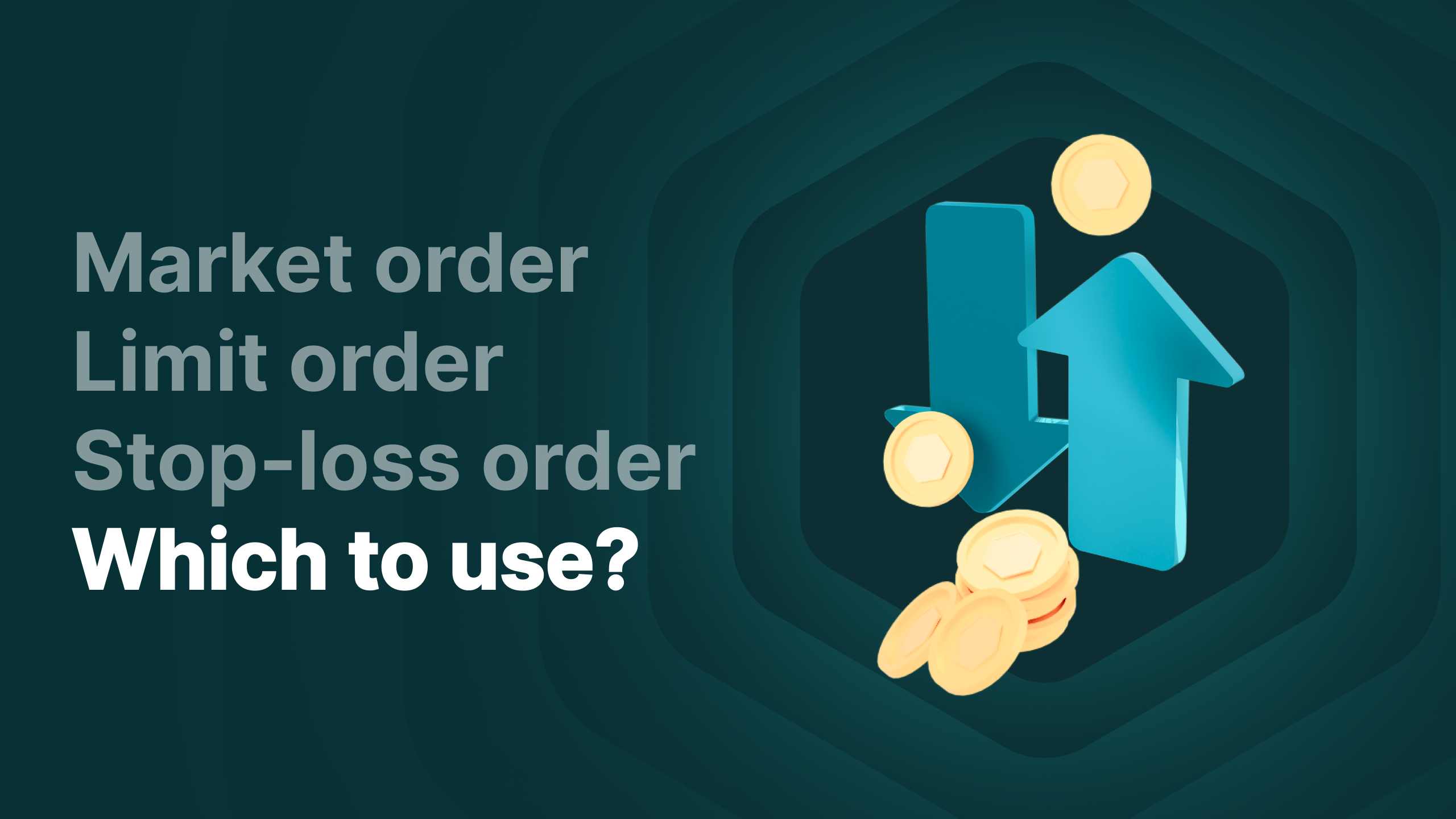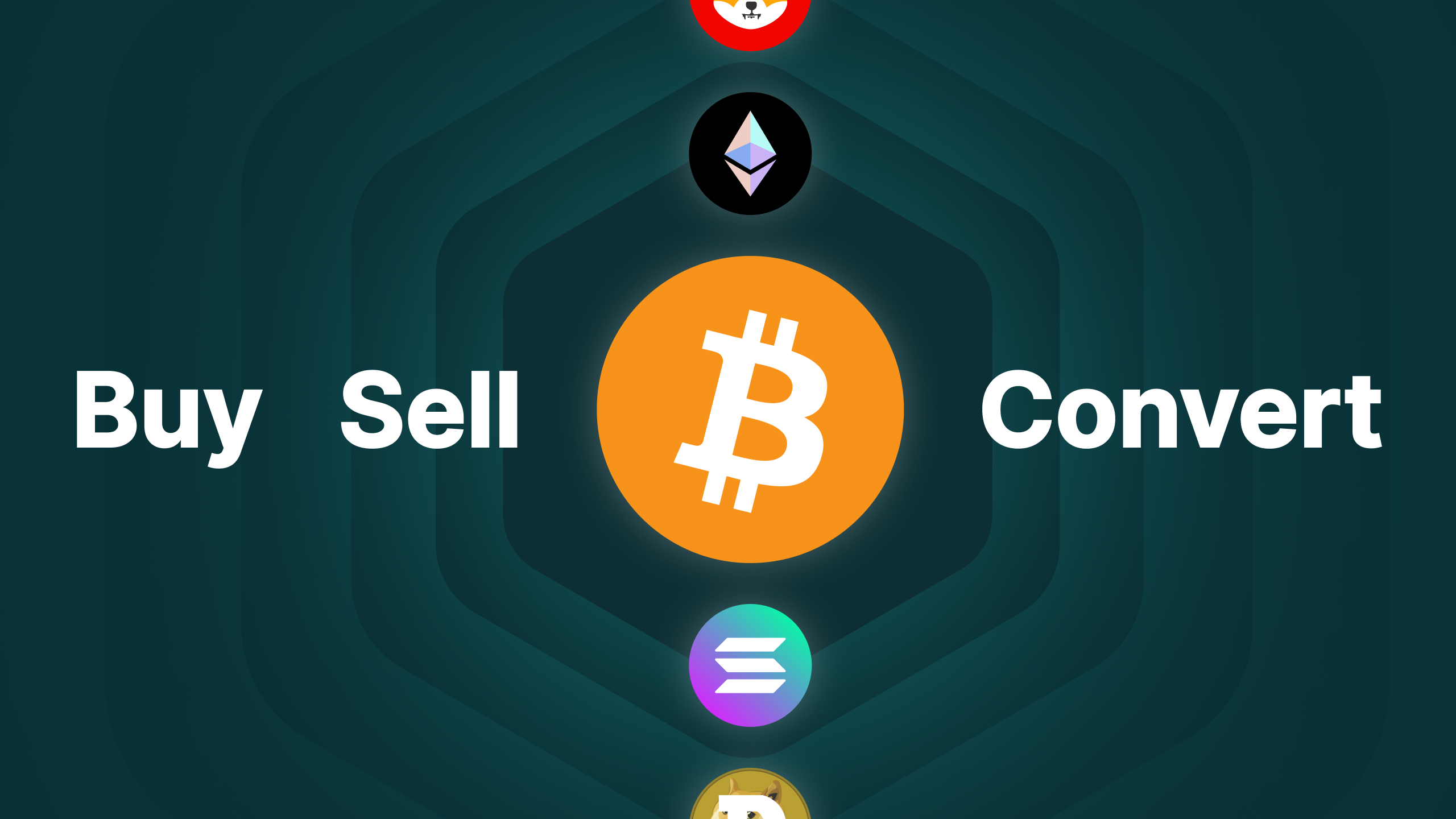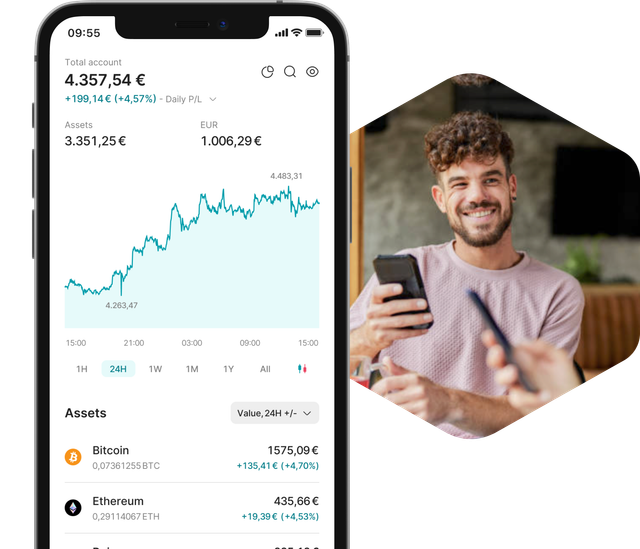-
How to buy Bitcoin?
Follow the steps below to easily and securely buy Bitcoin.
- Sign up
Create an account with a reputable crypto platform like Finst.
- Deposit EUR
Deposit Euros using payment methods like iDEAL, Bancontact, or SEPA.
- Start investing
Buy Bitcoin and securely store it on our platform.
-
Can I automatically invest in Bitcoin on a recurring basis (DCA)?
Yes, with Auto Invest, you can set up daily, weekly, bi-weekly, or monthly purchases of your favorite crypto using the Dollar Cost Averaging (DCA) strategy. Create your own investment plan and DCA Bitcoin without any action required or additional fees.
Do you prefer to store your crypto on your external wallet? At Finst, we have various cryptocurrencies enabled for automatic withdrawals, which are sent straight to your wallet after each recurring purchase.
-
What fees do I need to pay when buying Bitcoin?
When you buy Bitcoin through Finst, you benefit from the most competitive trading fees of 0,15% per transaction.
Any fees you may encounter when trading crypto are clearly shown for every transaction on our platform.
It's important to note that network fees are outside of our control, as they are determined by the blockchain networks themselves.
This means that while network fees may vary depending on the blockchain and current demand, our trading fee remains consistent, helping you better manage your transaction costs.
-
Which order types can I use to buy Bitcoin?
At Finst, we support several order types to buy Bitcoin: Market Order, Limit Order, and Auto Invest (DCA).
- With a Market Order, you buy Bitcoin instantly at the best available market price.
- Do you want to buy Bitcoin at a lower price? With a Limit Order, you set the maximum price you're willing to pay for Bitcoin. Your order will be executed once your limit price is reached on the market.
- Do you want to invest in Bitcoin without constantly checking the market? With Auto Invest, you can schedule automatic and recurring purchases. Whether you want to buy daily, weekly, bi-weekly, or monthly - you choose the frequency.
-
Can I use limit order to buy Bitcoin?
Yes, on our platform, you can easily buy Bitcoin with a Limit Order. This allows you to set the maximum price you're willing to pay. Your order will be executed once the price of Bitcoin reaches your limit price or lower.
A Limit Order is ideal if you want to wait for a better price without constantly monitoring the market.
-
Is it safe to buy Bitcoin?
Yes, it is safe to buy Bitcoin through Finst. We are registered as a Crypto Service Provider (no. R189158) with the Dutch Central Bank (DNB), and we are the first and only Dutch crypto platform that successfully obtained a Proof of Reserves (PoR) from an independent and reputable audit firm (Audit Now). At Finst, your assets are segregated and held on a 1:1 basis, plus reserves.
-
Is it legal to buy Bitcoin?
Yes, buying Bitcoin is legal in Europe. However, we advise you to do your own research before making a purchase.
-
Can I buy Bitcoin anonymously?
No, due to laws and regulations, it is not possible to buy Bitcoin or other cryptocurrencies anonymously on a regulated crypto platform in Europe.
-
Can I buy Bitcoin with iDEAL?
Yes, at Finst, you can easily buy Bitcoin with iDEAL. We also support popular payment methods like SEPA and Bancontact.
-
Do you have to buy one Bitcoin?
At Finst, you can start investing in Bitcoin with as little as €1. For many coins, it is not necessary to buy a whole coin.
-
What are the risks of investing in Bitcoin?
Investing in cryptocurrencies like Bitcoin involves risks of losses. You can lose (part of) your deposit. Before you decide to buy Bitcoin, it is important to understand the risks.
Volatility: The price of Bitcoin can fluctuate significantly. This means that its value can rise and fall quickly.
No guaranteed profit: Previous price increases do not guarantee future returns. Therefore, only invest money that you can afford to lose.
External factors: The price of Bitcoin is influenced by external factors, such as economic conditions and the actions of influential individuals, governments, and institutions. These factors can have a positive or negative impact on the price.
-
How to store Bitcoin?
You can securely store your Bitcoin in your Finst wallet. Some cryptocurrencies also support external wallets, allowing you to send your crypto to your own wallet if desired. We use state-of-the-art security measures to keep you and your crypto safe.
We work with Fireblocks, one of the most trusted crypto security infrastructure providers, to safely store your Bitcoin. They make use of Multi-Party Computation (MPC) technology which is an advanced cryptographic technology used to protect your digital assets.
Additionally, Finst is the first and only Dutch crypto platform that has successfully conducted an extensive Proof of Reserves (PoR) audit. With Finst, your assets are segregated and held on a 1:1 basis, plus reserves.
-
Can I send my Bitcoin to an external wallet?
Yes, you can send your Bitcoin to an external wallet. With Finst, you can easily send your Bitcoin to a hardware or a software wallet.
-
Can I store Bitcoin on a hardware wallet?
Yes, you can store Bitcoin (BTC) on hardware wallets such as Ledger or Trezor.






